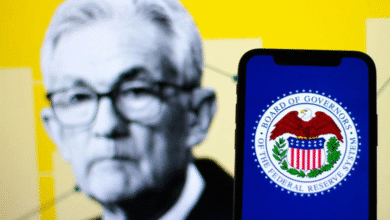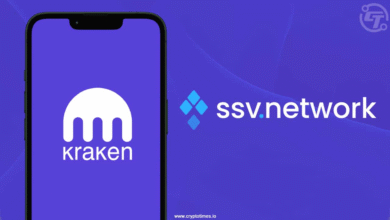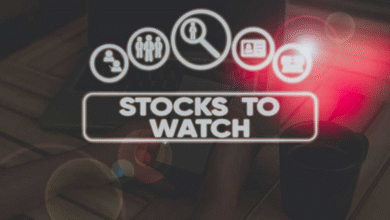Bitcoin Market Trends: Altcoins Struggle for Momentum

In recent weeks, Bitcoin market trends have showcased a sense of stagnation, with the leading cryptocurrency hovering under the $120K mark since reaching its peak of $123K on July 14. Despite a generally bullish sentiment gauged by the Coinmarketcap Greed Index, which recently recorded a level of 70, Bitcoin has faced challenges in rekindling the rally seen earlier this year. While some altcoins like ether (ETH) and XRP experienced double-digit price increases, they have not succeeded in dethroning Bitcoin from its prominent position within the cryptocurrency investment landscape. Market metrics indicate that the Altcoin Season Index peaked at 56 just days ago but has now sunk to 40, highlighting the struggles altcoins face in this current environment. As the momentum wanes, traders are left analyzing Bitcoin price trends and overall crypto market dynamics to evaluate future investment opportunities.
Examining the prevailing dynamics in the cryptocurrency sphere reveals a concerning landscape for many digital assets. As Bitcoin remains largely unresponsive, discussions surrounding alternative cryptocurrencies, or altcoins, become increasingly relevant. Market observers are keenly monitoring not just Bitcoin’s position but also the performance of altcoins, especially as hopes for an upcoming altcoin season begin to diminish. The mixed results from key player metrics, including the Altcoin Season Index and general crypto sentiment indicators, signal a complex interplay affecting both Bitcoin’s price movements and broader market trends. Therefore, understanding these emerging trends is crucial for anyone navigating the intricate world of cryptocurrency investments.
Current Bitcoin Market Trends and Their Impacts
In the current cryptocurrency landscape, Bitcoin (BTC) market trends play a crucial role in shaping investor sentiment and market dynamics. After reaching an all-time high of $123,000, Bitcoin has faced significant resistance while trading between $117,000 and $119,000 lately. This period of consolidation indicates a strong potential for future volatility, especially as traders assess market signals and trends. Factors such as market capitalization and trading volume are key indicators for potential price movements that could either pave the way for a bullish reversal or lead to further consolidation.
The relative stability in Bitcoin’s price can significantly impact altcoin performance, as investors often look to Bitcoin as a benchmark for market direction. Historically, when Bitcoin stalls, altcoins struggle to gain momentum, particularly during uncertain market conditions. Currently, metrics like the Greed Index and Altcoin Season Index show a decline in enthusiasm for altcoin investment, demonstrating that heightened Bitcoin dominance might discourage capital flow into altcoins and affect their price trajectories.
Altcoin Performance Amidst Bitcoin’s Stability
Despite Bitcoin’s recent stabilization, the altcoin market has shown signs of struggle as highlighted by recent fluctuations in key altcoins like Ethereum (ETH) and XRP. While these assets experienced significant rallies, the overall altcoin season remains elusive with the Altcoin Season Index dropping to 40. This situation reflects the inherent challenges altcoins face in establishing themselves and gaining market recognition when Bitcoin is perceived as the leader, limiting opportunities for many lesser-known tokens to achieve their potential.
Investors appear to be cautious, weighing altcoin investment opportunities against the backdrop of Bitcoin’s steady performance. The rise of PEENGU and other smaller tokens this week has provided some bullish signals, but the fading hopes of a robust altcoin season indicate that caution still reigns supreme. Crypto market metrics indicate that many traders are still waiting for more substantial shifts in Bitcoin’s price action before reallocating their investment towards altcoins, which creates an atmosphere of uncertainty for potential altcoin rallies.
Bitcoin Price Analysis: Where Do We Go from Here?
Bitcoin price analysis remains a critical piece of the puzzle for investors navigating the current market. The digital asset has exhibited a steady trading pattern around $118,745, indicating a reluctance from traders to push aggressively in either direction. Many market analysts are focusing on key support and resistance levels, with a watchful eye on any news or events that may trigger significant price shifts. In combination with a declining BTC dominance of 61.83%, this analysis underscores the need for strategic investment decisions at this juncture.
Additionally, trading volume and market capitalization are crucial metrics that may provide insights into Bitcoin’s potential future trajectory. The recent uptick in trading volume to $74.27 billion could signify rising interest among institutional and retail investors alike. Moreover, analysts are examining the correlations between Bitcoin’s price movements and broader cryptocurrency market trends, which could help inform predictions for the coming weeks and potentially predict the onset of a more vibrant altcoin market.
Exploring the Dynamics of Altcoin Season
With Bitcoin firmly at the center of the crypto universe, the concept of an altcoin season is an exciting yet elusive phenomenon. In recent weeks, many have speculated about the potential for an altcoin season characterized by substantial price rallies across lesser-known cryptocurrencies. However, with Bitcoin’s dominance likely to persist given its market position, the dynamics of altcoin performance may remain subdued unless Bitcoin undertakes another significant market move.
Currently, many traders are watching the developments surrounding altcoin price movements as they anticipate a broader shift that could provide the necessary momentum for altcoins to claim their space in the spotlight. As the crypto market metrics evolve, signs of vitality in the altcoin sector will be closely monitored, particularly now that sentiments reflected in the Altcoin Season Index and Greed Index suggest that patrons are cautiously optimistic.
Navigating Cryptocurrency Investment Strategies
In light of the current market conditions, cryptocurrency investment strategies must be well-informed and nuanced. Investors should consider diversifying their portfolios to include a combination of Bitcoin and promising altcoins. This diversification can mitigate risks associated with Bitcoin’s occasional stagnation while also enabling investors to capitalize on potential growth opportunities within the altcoin segment. Moreover, staying updated with market metrics and key price levels is essential for making timely investment decisions.
In addition, employing technical analysis tools can provide a significant edge in navigating market fluctuations. Understanding the trends and patterns associated with Bitcoin prices, as well as altcoin performance metrics, allows investors to make informed decisions based on market behavior. This strategic approach can enable crypto enthusiasts to enhance their investment outcomes and adapt to the ever-evolving landscape of cryptocurrency.
Impact of Trading Volume on Market Sentiment
The trading volume of cryptocurrencies plays a pivotal role in shaping market sentiment and can influence the price direction of Bitcoin and altcoins alike. Recently, Bitcoin’s trading volume saw a significant increase of nearly 10%, reaching $74.27 billion, suggesting heightened interest from investors. This uptick not only underscores the demand for Bitcoin but also indicates that traders are positioning themselves ahead of potential volatility in the market, whether that translates to upward momentum or corrections.
In parallel, monitoring the trading volume of altcoins provides a glimpse into market sentiment for these assets. A rise in altcoin trading volume could signal investor confidence and excitement, potentially foreshadowing a shift toward an altcoin season. Hence, assessing trading metrics alongside price fluctuations allows investors to gauge market health and adjust their strategies accordingly, ensuring they remain responsive to changes in the fast-paced cryptocurrency environment.
Investor Sentiment and Its Influence on Price Fluctuations
Investor sentiment is a critical factor that can cause substantial fluctuations in cryptocurrency prices, particularly in a volatile market like that of Bitcoin and altcoins. The recent drop in the Greed Index from 70 to 67 suggests a more cautious outlook among investors, reflecting uncertainty regarding the future direction of the market. As sentiment moderates, it can lead to reduced trading activity for altcoins, as investors typically follow Bitcoin’s lead.
As market participants grapple with these emotional responses, strategies to manage fear and greed can also determine successful investment outcomes. Understanding the psychological aspects of trading and their impact on price dynamics will enable investors to approach the market with clarity and conviction. By leveraging this understanding, individuals can better navigate their trades, weigh altcoin opportunities, and even participate in Bitcoin price analysis more effectively.
The Future of Cryptocurrency Market Metrics
Understanding cryptocurrency market metrics remains critical for anyone looking to predict future price movements effectively. Metrics such as Bitcoin’s market capitalization and trading volume provide invaluable insights into market health and future trends. As investor behavior shifts in response to these metrics, they also help us decipher the potential launch of new trends within altcoin performance. Trends in BTC dominance and liquidity can also signal whether the market will expand or contract, offering foresight into potential shifts on the horizon.
As the crypto landscape continues to evolve, investors are encouraged to adopt a holistic approach by analyzing market metrics across different assets. This analysis can provide a comprehensive view of market dynamics and help discerning investors identify key opportunities within both Bitcoin and altcoins. Ultimately, being equipped with knowledge of these metrics can empower traders and influencers in the crypto space to navigate their journeys successfully.
Analyzing the Feasibility of the Upcoming Altcoin Season
The feasibility of an upcoming altcoin season appears increasingly uncertain as key indicators suggest a prevailing Bitcoin dominance that continues to overshadow altcoins. The Altcoin Season Index has shown a decline, indicating a lack of sufficient momentum for altcoins to rise independently. With Bitcoin stabilizing at a strong price, the challenge for altcoins is to create distinct narratives that can attract investment and drive prices higher, separating themselves from Bitcoin’s looming shadow.
In light of this scenario, investors must remain vigilant as they evaluate altcoin investment strategies moving forward. Observing market trends closely and paying attention to emerging catalysts that could ignite altcoin rallies will be essential. As market conditions change, keeping a focused eye on key altcoins’ performances and any shifts in Bitcoin’s price could help participants identify the right moments to engage in altcoin investments and assess the genuine potential for an altcoin season.
Frequently Asked Questions
What are the current Bitcoin market trends affecting altcoin performance?
Current Bitcoin market trends are characterized by BTC’s stability below $120K since its peak of $123K on July 14. Despite a relatively bullish sentiment indicated by the Greed Index, altcoins have struggled to gain momentum, exemplifying the ongoing dominance of Bitcoin in the cryptocurrency market.
How does Bitcoin price analysis influence cryptocurrency investment decisions?
Bitcoin price analysis is crucial for cryptocurrency investment decisions as it helps investors gauge market sentiment and trends. Currently, with Bitcoin prices hovering around $118K, its performance directly impacts altcoin investments, as many traders look for signs of an altcoin season which remains elusive for now.
Are we experiencing an altcoin season despite Bitcoin’s recent performance?
Despite Bitcoin’s recent performance being flat, an altcoin season appears to be faltering. The Altcoin Season Index has dropped to 40, indicating that altcoins like ETH and XRP, while performing well, have yet to challenge Bitcoin’s dominance, which continues to hinder a full-blown altcoin rally.
What should investors watch in crypto market metrics related to Bitcoin and altcoins?
Investors should closely monitor crypto market metrics such as the Greed Index, Bitcoin’s trading volume, and the Altcoin Season Index. These metrics provide insights into market sentiment and potential shifts between Bitcoin dominance and altcoin performance, which are critical for strategic investment planning.
How do shifts in Bitcoin’s dominance affect altcoin investment strategies?
Shifts in Bitcoin’s dominance, which currently stands at 61.83%, significantly affect altcoin investment strategies. A strong Bitcoin typically suppresses altcoin performance, leading investors to focus on BTC rather than diversifying into altcoins, particularly when the market trends indicate a strong BTC hold.
| Key Point | Details |
|---|---|
| Bitcoin Price Movement | Bitcoin has remained under $120K, trading at approximately $118,745.25, with minimal fluctuations in the past week. |
| Altcoin Performance | Despite a relatively positive sentiment, altcoins have not been able to outpace Bitcoin, with the Altcoin Season Index dropping to 40. |
| Market Metrics | 24-hour trading volume increased by 9.94% to $74.27 billion; market cap slightly increased by 0.65% to $2.35 trillion. |
| Liquidation Trends | Total BTC liquidations at $72.56 million, with long positions suffering the majority of losses ($51.03 million). |
Summary
Bitcoin market trends currently indicate a period of stagnation for the leading cryptocurrency, as it hovers just below the $120K mark. While some altcoins have shown promise, the overall market demonstrates a cautious sentiment, with diminishing hopes for an altcoin season on the horizon. Investors must remain vigilant as market dynamics shift and influence Bitcoin’s performance.




